Tips
Diet and Fitness Advice for a New Lifestyle
Have got the new ‘LOW’ and a rejuvenated body? Jump on the chance to kick-start a healthier lifestyle from here on. It’s a lifestyle commitment to achieve good health and look for yourself!

BASIC Rally Them Up
First, invite and engage your loved ones to kick-start the new lifestyle with you. A little change will work wonders to your health and beauty too!
First, invite and engage your loved ones to kick-start the new lifestyle with you. A little change will work wonders to your health and beauty too!
Eliminate Regularly
Start with some simple daily habits. Regular bowel movements allow our body to rid itself of waste and intestinal pollutants. Remember to clean out our system regularly.
Start with some simple daily habits. Regular bowel movements allow our body to rid itself of waste and intestinal pollutants. Remember to clean out our system regularly.
Do Deep Breathing
Deep breaths encourage full oxygen exchange. It helps to rid the body of toxins and free radicals. Do deep abdominal breathing 4 or 5 times per hour. The exhale should be twice as long as the inhale.
Deep breaths encourage full oxygen exchange. It helps to rid the body of toxins and free radicals. Do deep abdominal breathing 4 or 5 times per hour. The exhale should be twice as long as the inhale.
Get Adequate Rest
Sleep is a process of restoration and renewal for the body. Go to bed the same time every night and get 6 to 8 hours of uninterrupted sleep.
Sleep is a process of restoration and renewal for the body. Go to bed the same time every night and get 6 to 8 hours of uninterrupted sleep.
Joy And Love
Live the days with passion, joy and love! A happy mind and positive attitude lightens our burdens and supports good health.
Live the days with passion, joy and love! A happy mind and positive attitude lightens our burdens and supports good health.
dIET Cardiovascular Exercises At Least Three Times A Week
The exercises which are more effective for weight control are the aerobic exercises (also known as cardiovascular exercises) like jogging, swimming, cycling, and brisk walking. On average, we should carry out aerobic exercises at least three times a week, at least 20 minutes each time.*
To minimise risk of injury, make sure you have on appropriate footwear that can help to reduce the impact to your knees during the exercises.
*Information from Singapore Health Promotion Board
Light Exercises For Individuals Unable To Sustain Cardiovascular Exercises
Here are some light exercises for you to do in the comfort of your home or during raining days. The exercises shown are not all inclusive and we recommend that you combine with other exercises and work out at least half an hour, 5 times a week to achieve the best results.
Every Little Bit Counts
Do you have a packed schedule that leaves no time for workouts? Incorporate simple exercises into your daily routines. Choose to take the stairs, do stretching exercises while watching TV, slip in a few sets of jumping jacks during commercials… Every little bit counts!
Body-Toning Exercises For That Sculptured Body
For a more intensive work-out of targeted body parts, you can try the following fun and effective body-toning exercises. Do sets of 15-20 for each exercise. Aim for 3-5 sets each time.
For maximum effects, do toning exercises right after you finished your cool down stretches after cardiovascular exercises. This is so effective that, assuming you do cardiovascular exercises three times a week of at least 20 minutes each time, as recommended, there is no need for you to do toning exercises everyday. Effects will be comparable regardless you do it everyday or 3 times a week. Otherwise, aim to do toning exercises everyday. You can do it while watching your favorite TV programmes!
Apply Body Gel before/after exercises to optimise the loss of fats and cellulites.
Eat Something Within An Hour Of Ending Cardiovascular Exercises
Try to consume something for energy within an hour of ending your cardiovascular exercises. Some good suggestions will be fruits, or a light meal of a small portion of rice. Not doing so might cause light-headedness due to low blood sugar, or worse, kick start a “Starvation Mode” which might trigger your body to lower metabolism in an effort to retain energy, thus minimising the loss of fats from the body.
fITNESS
practise Enzyme-Rich Diet Styles
Enzymes are the key to all our digestive and metabolic life processes. Replenish your body with sufficient enzymes to keep you looking and feeling your best all the time. So add more fresh raw greens or quality enzyme supplementation to your diet!
More Plant-Based Foods
In a regular meal, include more (80-90%) plant-based foods. Some good choices are whole grains, brown rice, barley, beans, green and yellow vegetables, root vegetables, fruits, seeds and nuts. Try to trim down the portion of animal-based proteins.
Consume Less Fat
The Asian diet comprises too much of processed carbohydrates, including bread, rice, and noodles. We are also prone to high intakes of sweetened juices, sweet and greasy snacks. Such a diet, while popular, is not the most ideal nourishment for our long-term health. Eating less fat will help you lose weight. On the contrary, eat more whole grains, such as brown rice and whole wheat bread, vegetables and fruits, instead.
Smaller Portions, Please
Reduce the portion of your meals, but include more meals, if required, if your daily activities require higher energy needs. Smaller portions help you to avoid over-stuffing yourself. You should stop eating when you feel you are sufficiently (70%) full.
Eat Slowly
The signal of satiety (feeling of fullness) takes about 20 minutes to reach the brain. Hence, people who eat faster tend to consume much more than they require, as compared to slower ones, before having the perception that they’ve had enough.
Chew Well, Thoroughly
Chewing stimulates the secretion of saliva. Digestive enzymes found in saliva, when mixed with food while chewing, improve digestion and absorption.
Shorten Your Eating Intervals
With smaller portions during each meal, now you can afford to eat five times a day (every 3 hours). Of course, do adjust the total number of meals according to the energy requirements you need in your daily activities.
Shortening the intervals between meals ensures that your body do not misunderstand the long period without food to be a famine and avoids the unwanted automatic switch of biological systems to “Starvation Mode” where metabolism is slowed down and food is converted to fats in order to prepare your body for the (wrongly-) anticipated shortage of food.
Water Management
Drink 2 glasses of warm water upon rising in the morning. Take at least eight glasses of water (1.5-2L) a day. There is no other substitute for water. It is the one true calorie-free health source that can provide satiety effectively. When you feel hungry, drink some water before you even think of getting a small bite. The feeling of fullness will curb your snacking habit.
* With reference to Dr Hiromi Shinya’s The Enzyme Factor
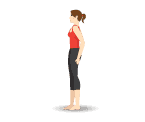
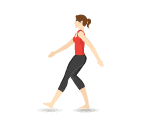
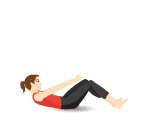
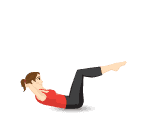
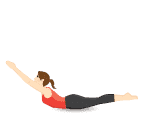
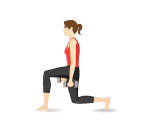
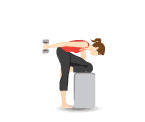
No comments:
Post a Comment